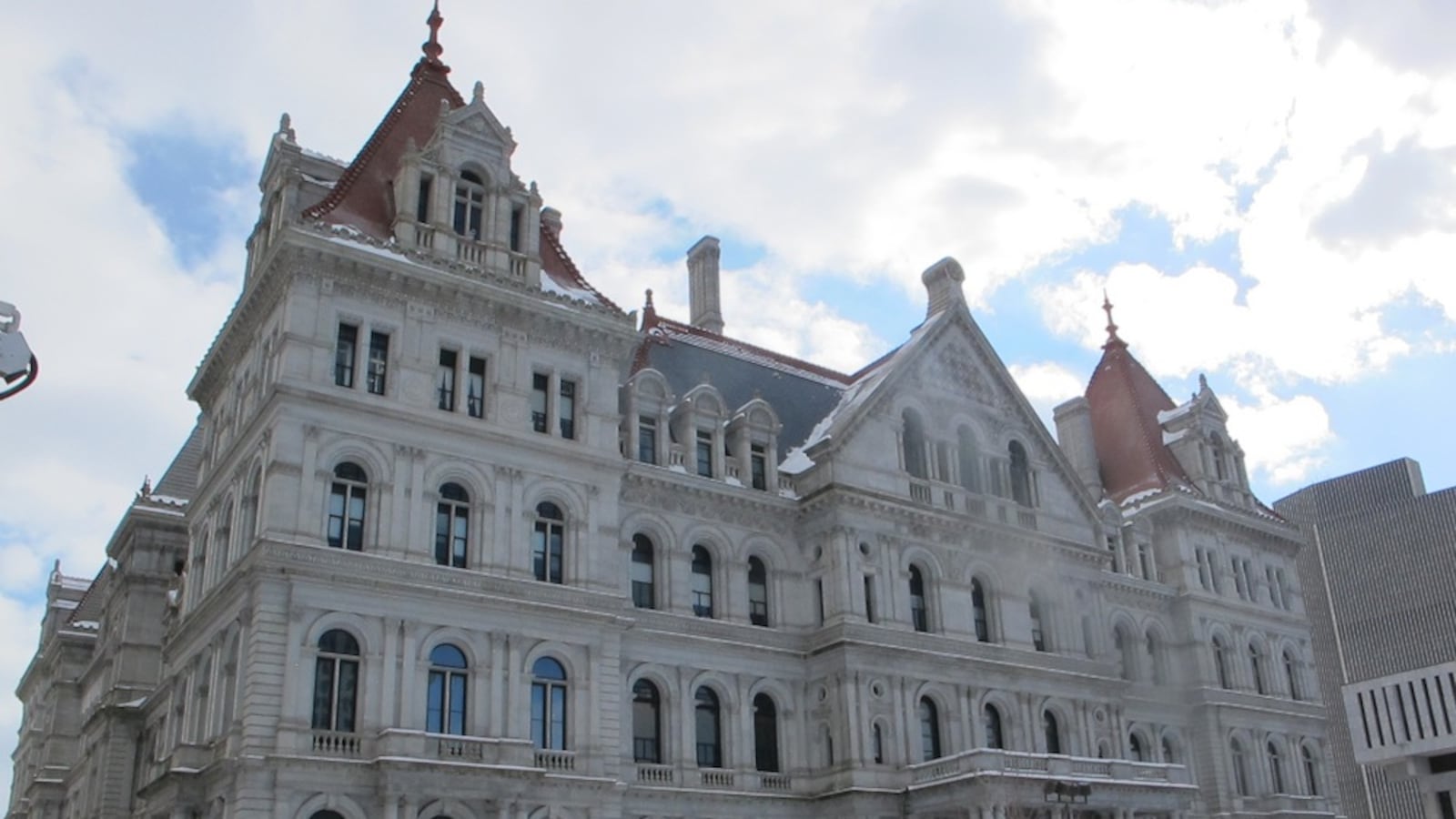With just hours left in the last official day of the legislative session on Wednesday afternoon, there looked to be some action on two important New York City-centric education issues.
The Senate had added a charter school bill with a one-year extension of mayoral control onto its agenda, meaning it would come up for a vote. It didn’t have much of a chance of passing, but there issues could at least get some public debate.
But by 9 p.m., the bill had been shelved. And with the session now continuing past its official end, mayoral control of city schools, changes to the state’s cap on charter schools, tax credits for private schools, and possible amendments to the new teacher evaluation law all remain unresolved, as lawmakers haven’t yet moved past other pressing issues like rent regulations for New York City and a real estate tax credit.
“There’s no reason for us to be on the final day like this,” said George Latimer, a Democrat the ranking minority member on the Senate’s education committee. “We’ve wasted the bulk of April and the bulk of May not having any of these conversations. And I think it’s on purpose.”
A few things did get done on Wednesday. Lawmakers agreed to strengthen sexual consent laws on college campuses, and came to a deal on tighter regulations for the city’s nail salon industry. The Senate even debated — and narrowly passed — a bill naming the wood frog the state’s official amphibian, prompting speculation that it might end up on the late-night circuit as the most recent example of Albany’s dysfunction.
Standing outside the Senate chambers on Wednesday afternoon, Latimer said he welcomed a transactional approach to extending mayoral control and allowing more charter schools to open in New York City, two issues that have little to do with the suburban Westchester schools he represents. He and several lawmakers said they hope negotiations include talks about amending the new teacher evaluation law to delay the deadline for districts to switch over.
The Senate has proposed a three-month delay, while the Assembly has proposed a full-year delay. Gov. Andrew Cuomo, who pushed for the new teacher evaluations in state budget negotiations this year, has said he is opening to giving districts more time to finalize their new systems, although he hasn’t said if he will support changes to the law. (The Board of Regents recently approved a waiver system that would allow eligible districts to apply to delay implementing the new system under current law.)
In addition to Cuomo, the people in charge of the talks are Assembly Speaker Carl Heastie and Senate Majority Leader John Flanagan, both of whom ascended to their leadership positions in recent months after their predecessors were felled by corruption scandals. Cuomo met with each separately behind closed doors on Wednesday, and Heastie and Flanagan also met together. But those meetings seemingly yielded little.
East Harlem Assemblyman Robert Rodriguez said the Assembly’s top priority remained renewing rent regulations, which expired on Monday and has created uncertainty for the rental costs of 2.5 million people who live in rent-regulated apartments, most of which are in New York City. But he said at this point education and housing issues were all likely part of the same conversation at this point.
“It looks like all those things are on the table and being addressed simultaneously,” Rodriguez said. “I don’t want to say it’s linked or not linked, but simultaneously all those conversations are moving forward.”
Rodriguez also said that changes to the state’s cap on charter schools were on the table in the Assembly in addition to the Senate.
“I think the Senate has an interest in increasing [charters], and the Assembly has an interest in managing how that’s done and making sure it’s done effectively and thoughtfully based on what’s currently available under the previous cap,” Rodriguez said. “So they’re being discussed under both houses.”
Correction: A previous version misstated the area the Assembly member Rodriguez represents.


